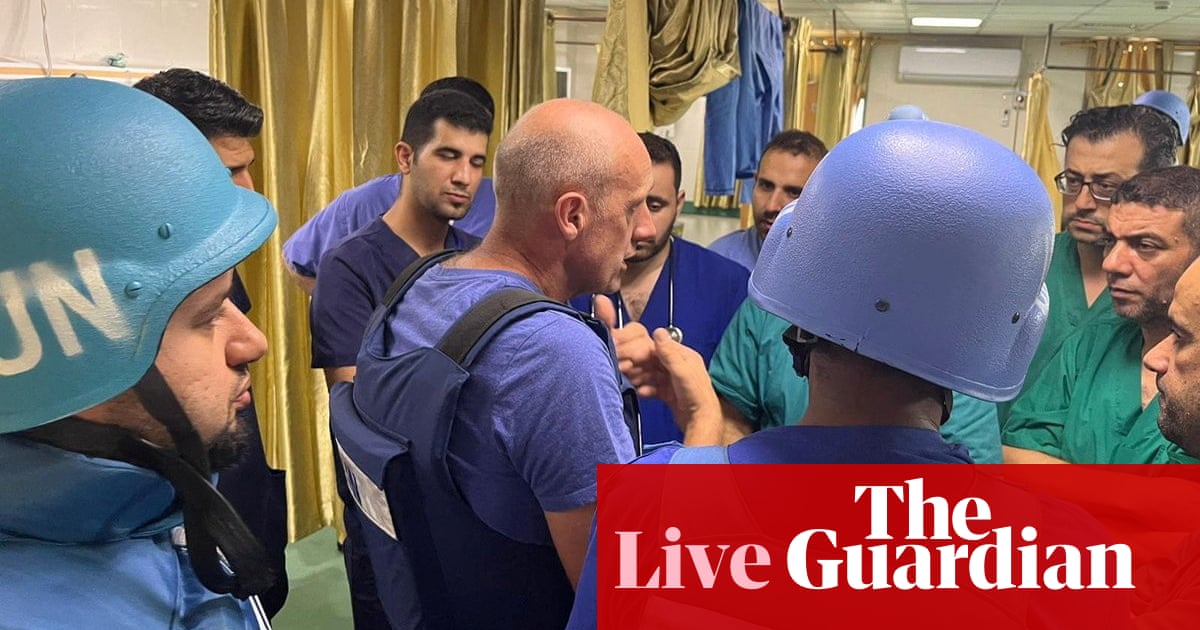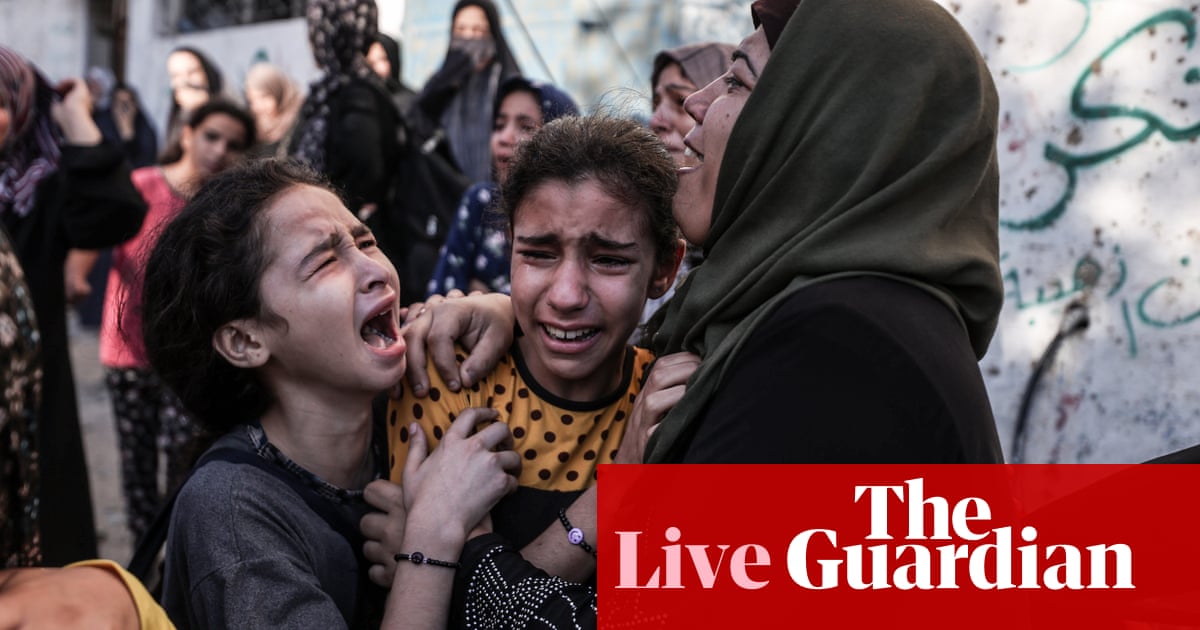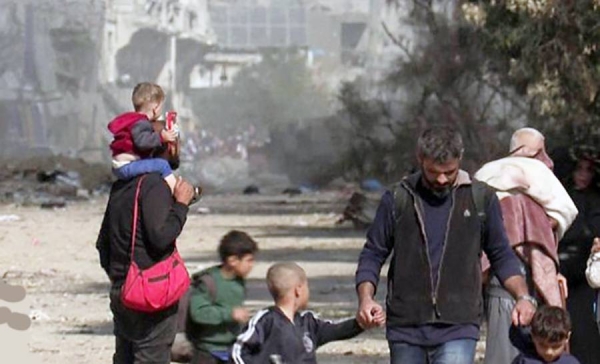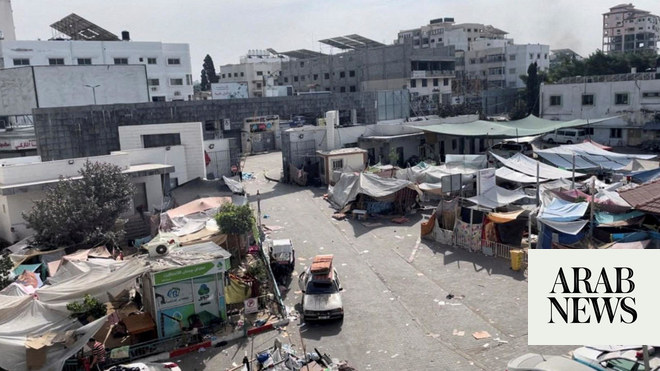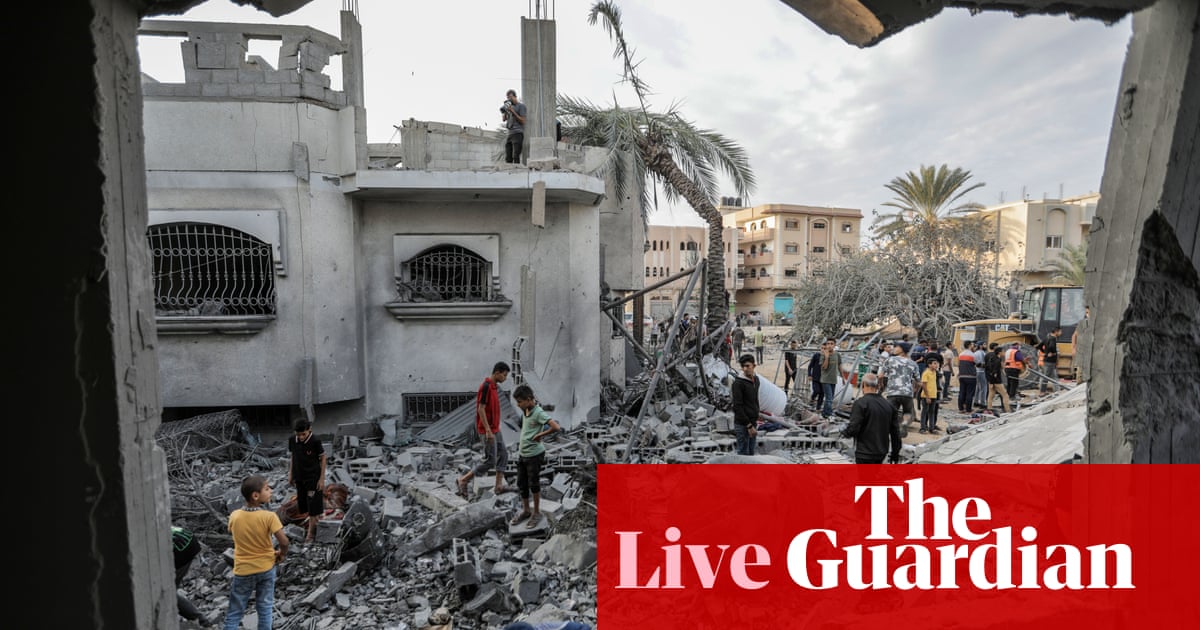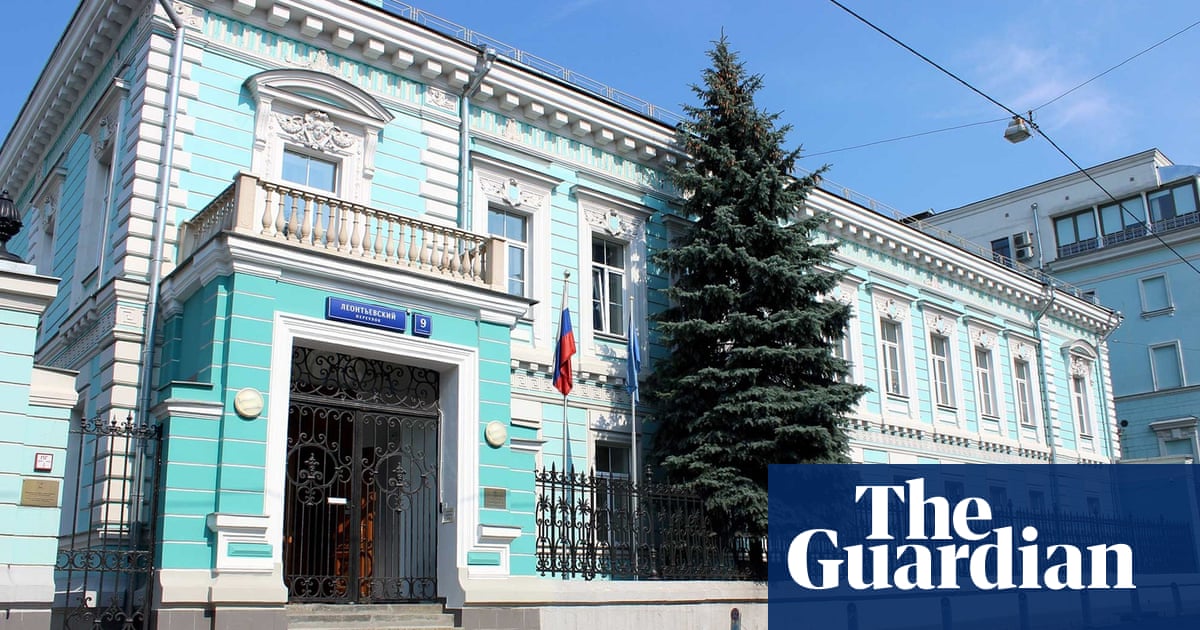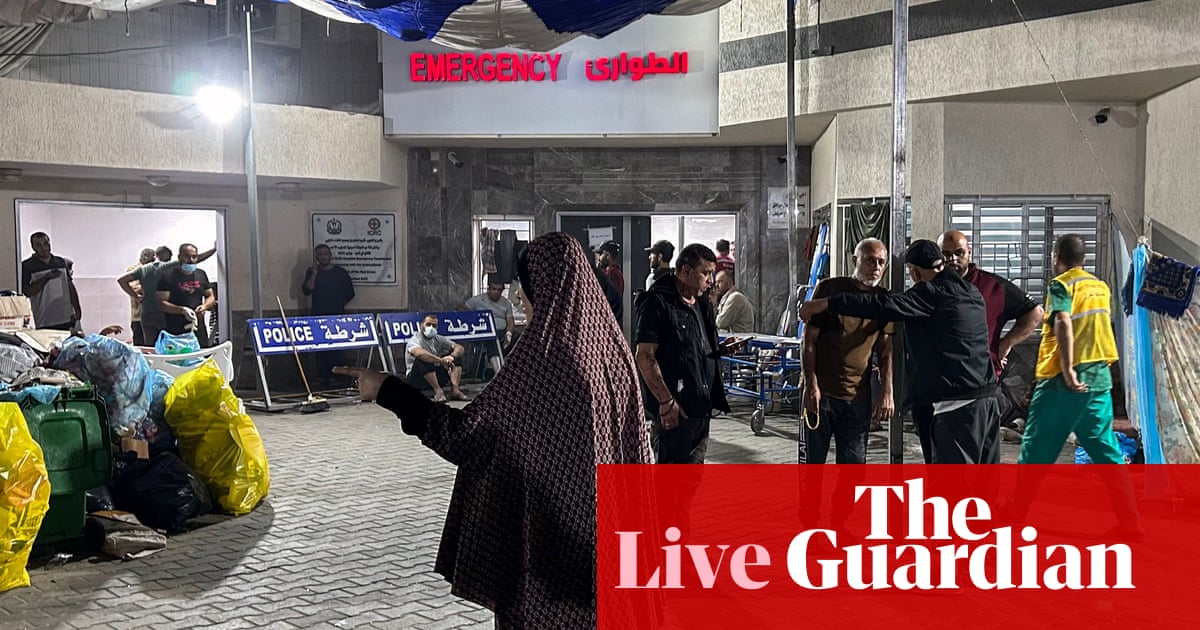
WHO restores communication with Al Shifa hospital
The World Health Organization has managed to get in touch with healthcare workers at Gaza’s al Shifa hospital where thousands of Palestinians, including critically injured ones, are sheltering as the Israeli military encircles the hospital.
In a statement on Sunday, WHO chief Tedros Ghebreyesus called the situation “dire and perilous”.
It’s been 3 days without electricity, without water and with very poor internet which has severely impacted our ability to provide essential care. The constant gunfire and bombings in the area have exacerbated the already critical circumstances.
Tragically, the number of patient fatalities has increased significantly. Regrettably, the hospital is not functioning as a hospital anymore. The world cannot stand silent while hospitals, which should be safe havens, are transformed into scenes of death, devastation, and despair,” he added.
The WHO joins calls from other humanitarian groups including Medecins Sans Frontieres to stop attacks against healthcare facilities and for immediate ceasefire.
UN chief: Israel cannot use Hamas"s October 7 attacks as reason for "collective punishment of the Palestinian people"
In an interview with CNN’s Fareed Zakaria on Sunday, UN secretary general Antonio Guterres said that Israel cannot use Hamas’s October 7 attacks as “reason for collective punishment of the Palestinian people.”
“Since the very beginning, I have condemned Hamas. What Hamas did is horrific. Terror attacks, slaughtering women and children, and I’ve been very clear in the condemnation of Hamas.
But there is a basic principle for me… Hamas is not the Palestinian people. And you need to be able to distinguish Hamas from the Palestinian people. And so you cannot use the horrific things that Hamas did as a reason for collective punishment of the Palestinian people,” Guterres said.
He went on to describe the dire humanitarian condition in Gaza, saying:
“What we have seen until now is a drop by drop in the increase of humanitarian aid. After today we have about 900 trucks in this 22 days. 930-something trucks. Before, in the past, there were 500 trucks every day supplying Gaza. You can imagine what this means…”
He added that he has spoken to Iran and asked it to put pressure on Hamas to release the hostages, as well as inform Hezbollah that “you cannot create a situation in which Lebanon will be completely engulfed by this conflict.”
“If Hezbollah will launch a massive attack on Israel, it might create I don’t know what kind of impact. But one thing I’m sure Lebanon would not survive,” Guterres said.
In a webinar call with the Palestine Children’s Relief Fund on Sunday, British-Palestinian plastic surgeon Ghassan Abu Sittah delivered a harrowing testimony from Gaza on the rapidly deteriorating healthcare system in the strip.
In an emotional call, Abu Sittah said:
Right now, the Israelis have not shown any sign of humanitarianism. The brutalism of what is happening, it’s beyond belief … It’s clear that there is no intervening in this war to stop what is happening right now …
Lots of amputations. Blast injuries, the burns, the blast, dirt dust. The longterm effect is devastating because not only are we going to face the problem with the initial injuries, but also [the] delay in treatment … will mean more surgeries will be needed.
People will end up with more disabilities. In the case of children, children with war injuries need reconstruction until they stop growing …
He added:
I am at al-Ahli [Arab hospital]. I was going back and forth between al-Shifa and al-Ahli but I’ve been in al-Ahli since al-Shifa was about to collapse. This was an elective hospital. We are three surgeons here …
We don’t have access to the blood bank because the Israeli’s hit the blood bank. We have no access to al-Shifa since it was surrounded. We’re providing a rudimentary service. We’re the only show in town.”
The International Committee of the Red Cross has joined other global humanitarian organizations in calling for the urgent protection of civilians in Gaza, whether they are trying to evacuate or staying where they are.
In a statement released on Sunday, the ICRC said:
The ICRC is gravely concerned by the precarious and unsafe conditions under which civilians are evacuating.
Men, women, and children, waving white flags, walk for dozens of kilometers past dead bodies lying on the streets and without necessities like food and water.
At the same time, the ICRC teams in Gaza and hotline operators receive numerous calls from displaced people searching for their family members. It is paramount that members of the same family are not separated during evacuations.
Irrespective of the modalities of evacuations, safe zones or humanitarian pauses, the parties to the conflict continue to be bound by their obligations under international humanitarian law.
While civilians continue to move from the north to the south of Gaza, a hundred thousand displaced people lack essentials like shelter, food, water, and hygiene. The situation is rapidly approaching a humanitarian disaster.
The southern area is not equipped to cater to the massive number of people arriving with nothing but the clothes they are wearing, and the quantity of humanitarian aid coming in is largely insufficient. The ICRC reiterates its call for unimpeded and regular flow of humanitarian assistance.”
Unicef is repeating its calls for a humanitarian ceasefire, as well as unrestricted humanitarian access across Gaza and the release of all abducted children.
Speaking in a new video released by Unicef from a UN-run shelter, 12-year old Remas said, “Of course we are scared. We are still children. What is our fault?”
“To be forced to come to shelters where there is no water, no food, no mattresses, and we sleep on the floor in the cold,” she added.
WHO restores communication with Al Shifa hospital
The World Health Organization has managed to get in touch with healthcare workers at Gaza’s al Shifa hospital where thousands of Palestinians, including critically injured ones, are sheltering as the Israeli military encircles the hospital.
In a statement on Sunday, WHO chief Tedros Ghebreyesus called the situation “dire and perilous”.
It’s been 3 days without electricity, without water and with very poor internet which has severely impacted our ability to provide essential care. The constant gunfire and bombings in the area have exacerbated the already critical circumstances.
Tragically, the number of patient fatalities has increased significantly. Regrettably, the hospital is not functioning as a hospital anymore. The world cannot stand silent while hospitals, which should be safe havens, are transformed into scenes of death, devastation, and despair,” he added.
The WHO joins calls from other humanitarian groups including Medecins Sans Frontieres to stop attacks against healthcare facilities and for immediate ceasefire.
US secretary of state Antony Blinken has spoken with the Qatari prime minister Mohammed bin Abdulrahman Al Thani on efforts to expand humanitarian assistance to civilians in Gaza.
They also spoke of ensuring the safe passage of foreign nationals and the critically wounded out of the war-torn strip, Blinken said in a tweet on Sunday.
The non-governmental humanitarian organization Care International has released the following statement on the deteriorating humanitarian situation in Gaza, calling it “unrecognisable”.
Hiba Tibi, Care’s West Bank and Gaza country director, said:
Gaza is now unrecognisable. The conditions in the north are unbearable. It is almost impossible to find food and drinking water. There is simply nothing left.
The journey to the south is incredibly dangerous and hard. Many of those who have made it out have experienced and witnessed terrible suffering. With each day that passes it is a miracle that people are still alive, particularly in the area near the two hospitals.
My uncle is among those seeking refuge near Shifa hospital in the north to get treatment for a pre-existing condition. This week, they went to get food but could only find a few cucumbers and lemons to feed 13 people. The cucumbers cost eight times what they used to. Just a handful of the nearly 30 apartments in his building are occupied.
Before, Gaza had 600 trucks arriving each day to bring supplies. Today, 32 days into the conflict, less than 600 have entered Gaza combined. We urgently need a ceasefire so that civilians can access food, water and medical supplies.”
German chancellor Olaf Scholz said Sunday he opposed an “immediate” ceasefire in the Gaza Strip, as calls multiply globally to halt the conflict.
“I don’t think the calls for an immediate ceasefire or long pause – which would amount to the same thing – are right,” Scholz said in a debate organised by the German regional daily Heilbronner Stimme, Agence France-Presse reports.
“That would mean ultimately that Israel leaves Hamas the possibility of recovering and obtaining new missiles,” he added, calling instead for “humanitarian pauses”.
Scholz’s stance clashes with many Arab countries, France’s Emmanuel Macron and Turkish president Recep Tayyip Erdogan, who is due to meet the German leader in Berlin next week.
Medecins Sans Frontieres said on Sunday that it has not been able to contact its staff in Gaza’s Al Shifa hospital since last night.
Other MSF colleagues living in Gaza city reported that the hostilities around Al-Shifa have not stopped. We are worried for their lives,” the humanitarian organization said.
Here are some images coming through the newswires from Gaza where thousands of Palestinians, including critically injured patients, sheltering in hospitals which have run out of fuel and oxygen, have either been trapped or forced to evacuate by Israel’s deadly bombardment:
Regional directors of Unicef, UN Population Fund and the World Health Organization are calling for “immediate action to halt attacks on healthcare in Gaza”.
In a joint statement released on Sunday, the regional directors said:
“We are horrified at the latest reports of attacks on and in the vicinity of Al Shifa Hospital, Al Rantissi Naser Paediatric Hospital, Al Quds Hospital, and others in Gaza city and northern Gaza, killing many, including children. Intense hostilities surrounding several hospitals in northern Gaza are preventing safe access for health staff, the injured, and other patients.
Premature and new-born babies on life support are reportedly dying due to power, oxygen, and water cuts at Al-Shifa Hospital, while others are at risk. Staff across a number of hospitals are reporting lack of fuel, water and basic medical supplies, putting the lives of all patients at immediate risk…
Attacks on medical facilities and civilians are unacceptable and are a violation of International Humanitarian and Human Rights Law and Conventions. They cannot be condoned. The right to seek medical assistance, especially in times of crisis, should never be denied.
More than half of the hospitals in the Gaza Strip are closed. Those still functioning are under massive strain and can only provide very limited emergency services, lifesaving surgery and intensive care services…
Decisive international action is needed now to secure an immediate humanitarian ceasefire and prevent further loss of life, and preserve what’s left of the health care system in Gaza.”
With thousands of Palestinians seeking shelter in al-Shifa hospital, Gaza’s largest medical center, Israel’s deadly ground offensive around the hospital has forced Palestinians to evacuate further south while many more stay trapped inside.
“We thought the hospital was a safe place but it wasn’t. If we had stayed another five minutes, we would have been killed. They started to bomb us and we ran away from al-Shifa,” one Palestinian woman said.
The hospital’s last generator has also run out of fuel, which has lead to at least six deaths, including a premature baby and child in an incubator.





